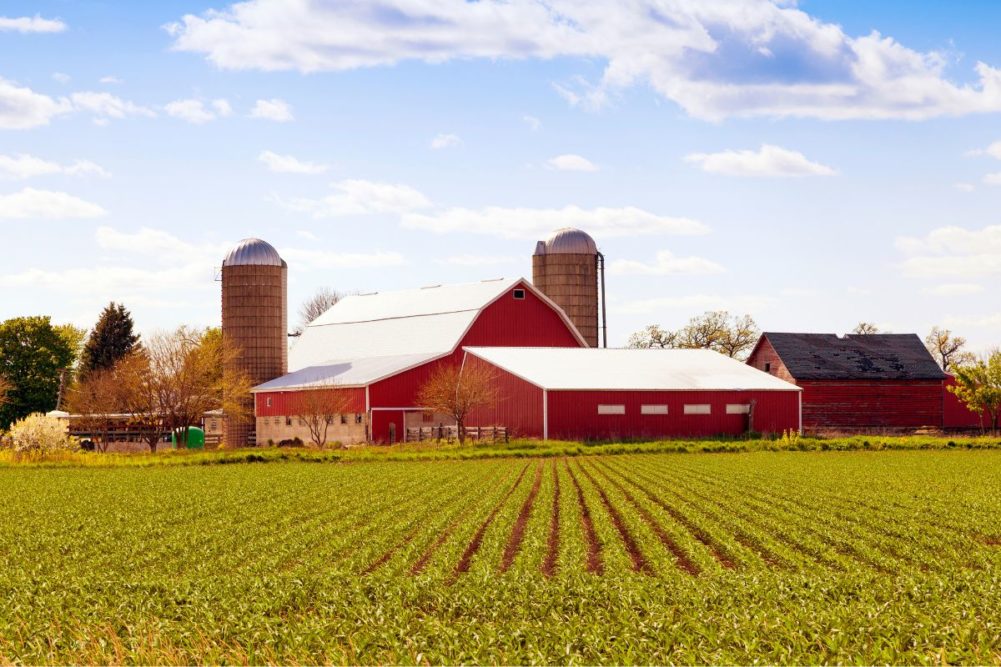AMES, IOWA, US — A $10 million, five-year US Department of Agriculture (USDA)-funded Diverse Corn Belt (DCB) Project launched in 2022 is exploring diversification of crops and livestock on farms in the US Midwest, which generally have become concentrated on crops such as corn and soybeans.
For example, in the state of Iowa, more than 24 million acres are devoted to crops, representing about 68% of the state’s land area, and more than 94% of that land is used to produce corn and soybeans, according to the 2021 National Agriculture Statistics Survey.
“Iowa’s agriculture is highly specialized, with almost all of its cropland planted to corn and soybeans,” said J.G. Arbuckle, professor of sociology at Iowa State University, director of the annual Iowa Farm and Rural Life Poll. “However, few farmers think agricultural specialization has generally been positive for farmers and rural communities.”
Arbuckle is one of the investigators on a multistate project seeking to address that trend. Overall, the team includes more than 30 investigators who are working with farmers and other agricultural stakeholders in Iowa, Indiana and Illinois to envision and evaluate more diverse agricultural systems for the Midwest. They aim to chart roadmaps that can help the region reverse trends that have been building for decades.
“Our goal is to plant the seeds for new opportunities for farmers that will enhance resilience of both individual farms and the agricultural landscape across our region,” said Linda Stalker Prokopy, DCB Project director, a professor and chair of the Department of Horticulture and Landscape Architecture at Purdue University.
Focus groups have been held to gather insight and ideas from farmers representing a range of ages, farm sizes and degrees of diversification. Members of the team are analyzing the initial data and plan to conduct more focus groups in 2023. The team also plans to collect data on farmer and agricultural stakeholder perspectives through a mail survey and individual interviews.
While focus groups will center specifically on farmers, Reimagining Agricultural Diversity (RAD) Teams will include stakeholders throughout the agricultural value chain, such as crop advisers, bankers, processors, retailers, non-farming landowners and policymakers. The RAD Teams will offer a chance for longer-term dialogue, exploration and visioning.
“As ideas develop, we will also use modeling to evaluate the economic, environmental and climatic implications of different crops and livestock choices, landowner decisions and policy changes,” said Philip Gassman, a researcher with the Center for Agricultural and Rural Development at Iowa State, who is part of the DCB’s modeling group.
Developing that infrastructure is part of the focus for another Iowa DCB partner, Practical Farmers of Iowa (PFI). PFI’s role includes extension-type support for outreach and field days, and leading market development channels for alternative farming enterprises, which could create the pull for other project components, said Lydia English, field crops viability manager for PFI, who has a master’s in sustainable agriculture from Iowa State.
“There is strong interest in creating alternative markets among the very diverse group of farmers we work with,” she said. “We view this as a two-way street: Farmers add value to the project, and the project has potential to benefit them over time by opening up new market options.”
The DCB Project is funded by the USDA National Institute of Food and Agriculture through an Agriculture and Food Research Initiative competitive grant. Members of the research team represent land grant institutions, federal agencies and nonprofit organizations.
Farmers or other stakeholders who are interested in learning more or getting involved can find out more at the Diverse Corn Belt website.





